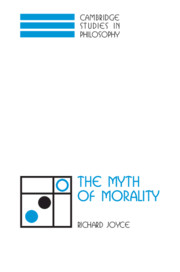Preface
Published online by Cambridge University Press: 22 September 2009
Summary
This book attempts to accomplish two tasks. The first part of the book examines moral discourse with a critical eye, and finds the discourse fundamentally flawed. Just what it means for a discourse to be “flawed” will need to be carefully discussed. For the moment, it will do to compare the situation with that of phlogiston discourse. Through the sixteenth and seventeenth centuries, the dominant theory for explaining a variety of phenomena – most notably combustion – was to posit a kind of invisible substance in the world: phlogiston. The theory allowed for various chemists, such as Stahl and Priestley, to employ what might be called “phlogiston discourse” – they asserted things like “Phlogiston is lighter than air,” “Soot is made up largely of phlogiston,” etc. In the eighteenth century Lavoisier showed that this discourse was utterly mistaken: there simply was no such stuff as phlogiston. I wish to argue that our moral discourse is mistaken in an analogous way. We assert things like “Generally speaking, you mustn't tell lies” and “Cloning humans is a terrible thing and mustn't be permitted,” and these assertions fail to be true. They fail to be true not because lying or cloning are really okay, but because they employ predicates like “… is forbidden” and “… is morally good” which are (in senses to be explored) vacuous.
- Type
- Chapter
- Information
- The Myth of Morality , pp. ix - xivPublisher: Cambridge University PressPrint publication year: 2001



